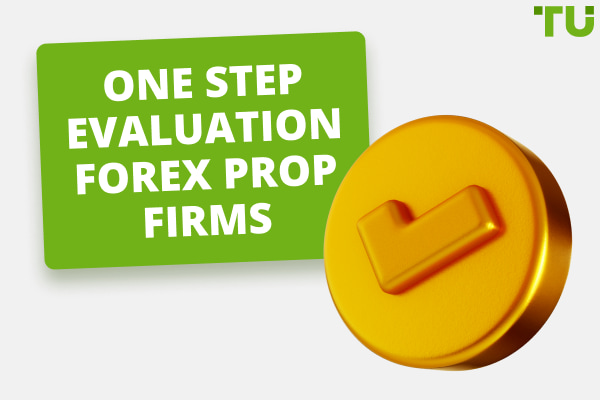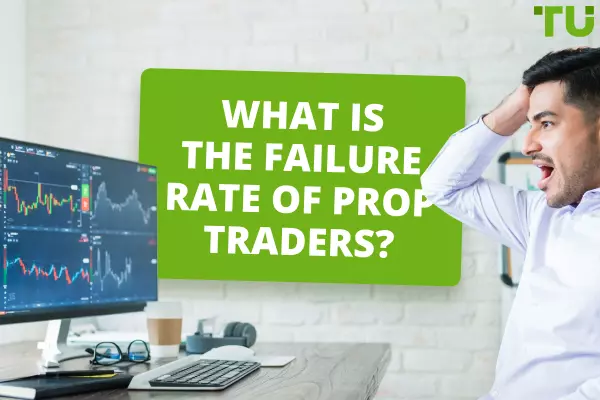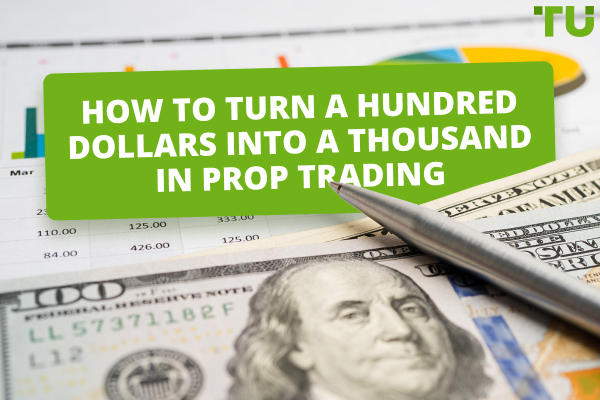The four types of prop trading firms
4 types of prop trading firms:
-
1
Independent prop trading firms
-
2
Bank prop trading desks
-
3
Broker-dealer prop trading desks
-
4
Market-making firms
Prop trading firms are organizations that autonomously use their own capital to trade on financial markets. They are an important part of the financial sector, and it is important to understand the different types of prop trading firms and who they are suitable for.
This article will discuss the four types of prop trading firms and who they are best suited for.
Fund your account with SurgeTrader!Key takeaways
-
Independent prop trading firms use their own capital and offer flexibility in choosing trading strategies.
-
Bank prop trading desks provide more stable conditions for traders but require higher qualification and experience requirements.
-
Broker-dealer prop trading desks include various types of firms and are subject to prop trading regulations.
-
Market-making firms Market trade to provide liquidity and may have restrictions on trading strategies, but have access to sophisticated technology.
The four types of prop trading firms
Prop trading firms come in a variety of forms, each with its own unique characteristics and strategies. These include:
-
Independent prop trading firms
-
Bank prop trading desks
-
Broker-dealer prop trading desks
-
Market-making firms
All of these types of prop trading firms have different strategies and approaches to trading, which should be studied carefully. Likewise, all of these can cater to different traders, so while one type may be a great fit for you, another might not.
Learn in detail how the business of proprietary trading companies works in the article: Proprietary Trading Explained
Independent prop trading firms
Although they offer more flexible terms, independent prop trading firms can also be riskier, as traders are solely responsible for their losses. These firms use their own capital to trade on various financial markets, often employing a variety of prop trading strategies.
These strategies can range from high-risk, high-reward directional trades to more conservative, income-producing strategies.
Independent prop traders typically have the freedom to choose their own strategies and the ability to move in and out of markets quickly. However, they also face the challenge of managing their own risk and capital.
As such, independent prop trading firms require a higher level of skill, knowledge and discipline to succeed.
Examples of independent prop trading firms include TopStepTrader, The 5%ers and Earn2Trade.
Learn about the features and conditions of funded accounts provided by various companies in the article: Prop Trading Accounts Compared
Bank prop trading desks
Bank proprietary trading desks hold a unique position in the financial world. These are specialized units within banks that are dedicated to trading on the financial markets, but not for their clients. Instead, they utilize the bank's own capital to take positions and make investments, aiming to generate direct profit for the institution.
Banks with prop trading departments often provide a more stable atmosphere for their traders. This stability emanates from the extensive resources and backing of large financial institutions.
However, this stability often comes with its own set of challenges. The competition within these units can be intense. Traders are usually expected to meet higher standards in terms of qualifications and experience. The screening process is rigorous, often only allowing those with a proven track record and elite skills to be a part of the team.
Prominent examples of banks that have or had prop trading desks include global giants like Goldman Sachs, Morgan Stanley, and JPMorgan Chase. These institutions are renowned for their prowess in the financial markets and have been known to attract some of the brightest minds in the trading world to their prop desks.
While the allure of working for such esteemed entities is undeniable, traders must be prepared for the high-pressure environment that often accompanies such prestige.
Broker-dealer prop trading desks
In addition to bank prop trading desks, broker-dealers also have their own prop trading desks that employ four distinct types of trading firms.
These include corporate prop trading firms, proprietary trading firms, hedge funds, and high-frequency trading firms.
-
1
Corporate prop trading firms trade on behalf of a company and are subject to the same prop trading regulations as banks.
-
2
Proprietary trading firms, also known as prop shops, are private companies that trade for their own account and are not subject to the same regulations as broker-dealers.
-
3
Hedge funds are investment vehicles that use a variety of investment strategies, including prop trading.
-
4
Finally, high-frequency trading firms use automated trading algorithms to rapidly execute trades.
All four types of prop trading firms have their own benefits and drawbacks, and it is important to understand the differences between them.
Market-making firms
Building on the four distinct types of prop trading firms discussed before, market-making firms are a type of those that trade on financial markets on their own behalf to provide liquidity for their clients.
They typically offer a higher level of support and training for their traders, but may be more restrictive of the strategies traders can use. Examples include CME Group, ICE Futures Europe, and Nasdaq.
Role of technology is key in market-making, as firms use automated algorithms to determine the best prices and quickly fill orders. This helps them to provide liquidity and capture profits quickly, without the need for human intervention. Additionally, market-making firms often have access to more sophisticated technology than other prop trading firms.
Best Prop trading firms
Who are the different types of prop trading firms suitable for?
Identifying which type of prop trading firm is most suitable for traders requires an understanding of each firm’s unique characteristics.
The table below provides an overview of what type of firm is best depending on the type of trader you are:
| Firm Type | Suitable For |
|---|---|
Independent Prop Trading |
Risk-tolerant traders seeking complete independence |
|
Banks with Prop Trading Departments |
Experienced traders looking for a stable environment |
|
Broker Dealers with Prop Trading Departments |
Traders who want a balance of flexibility and stability |
|
Market Making Firms |
Traders who want support and training and are willing to follow the firm’s rules and restrictions |
Learn about the benefits of prop trading in article: Is prop trading a good career?
Conclusion
Prop trading firms offer a unique opportunity for traders to make investments in financial markets. They vary in complexity, risk level, and type of trader they are suited to.
Prop trading can be a very lucrative option, but it’s not without its risks. Depending on the trader’s experience level, level of capital, and risk-appetite, one of the four types of prop trading firms may be the best fit.
Ultimately, there isn’t a one-size-fits-all solution. Prospective traders should consider their individual needs and objectives when selecting a prop trading firm.
FAQs
What are prop trading firms?
Proprietary trading firms, or prop trading firms, are companies that invest their own capital in financial markets to earn returns. Unlike traditional investment firms that manage client funds, prop trading firms take on direct market risk by trading their own money.
Which prop firm is the best?
The "best" prop trading firm varies based on individual preferences, trading styles, and needs. Several well-known firms have gained reputations for excellence, but it's essential for traders to research and find the one that aligns best with their goals and strategies.
Is there a list of prop trading firms?
Yes, various information resources make up the catalogs of prop trading firms. Traders Union has also compiled a comparative list of the 13 best proprietary trading firms
What is the World's Biggest Prop Firm?
The title of the "World's Biggest Prop Firm" can be subjective and based on different criteria, such as trading volume, capital, or global presence. Some of the prominent prop trading firms include Topstep, Fidelcrest and The 5%ers, but specific rankings can vary based on the source of the information.
Glossary for novice traders
-
1
Trading
Trading involves the act of buying and selling financial assets like stocks, currencies, or commodities with the intention of profiting from market price fluctuations. Traders employ various strategies, analysis techniques, and risk management practices to make informed decisions and optimize their chances of success in the financial markets.
-
2
Broker
A broker is a legal entity or individual that performs as an intermediary when making trades in the financial markets. Private investors cannot trade without a broker, since only brokers can execute trades on the exchanges.
-
3
Prop trading
Proprietary trading (prop trading) is a financial trading strategy where a financial firm or institution uses its own capital to trade in various financial markets, such as stocks, bonds, commodities, or derivatives, with the aim of generating profits for the company itself. Prop traders typically do not trade on behalf of clients but instead trade with the firm's money, taking on the associated risks and rewards.
-
4
Types of prop trading firms
Prop trading firms come in a variety of forms, each with its own unique characteristics and strategies. These include: independent prop trading firms, bank prop trading desks, broker-dealer prop trading desks, market-making firms
-
5
Leverage
Forex leverage is a tool enabling traders to control larger positions with a relatively small amount of capital, amplifying potential profits and losses based on the chosen leverage ratio.
Team that worked on the article
Vuk stands at the forefront of financial journalism, blending over six years of crypto investing experience with profound insights gained from navigating two bull/bear cycles. A dedicated content writer, Vuk has contributed to a myriad of publications and projects. His journey from an English language graduate to a sought-after voice in finance reflects his passion for demystifying complex financial concepts, making him a helpful guide for both newcomers and seasoned investors.
Dr. BJ Johnson is a PhD in English Language and an editor with over 15 years of experience. He earned his degree in English Language in the U.S and the UK. In 2020, Dr. Johnson joined the Traders Union team. Since then, he has created over 100 exclusive articles and edited over 300 articles of other authors.
Mirjan Hipolito is a journalist and news editor at Traders Union. She is an expert crypto writer with five years of experience in the financial markets. Her specialties are daily market news, price predictions, and Initial Coin Offerings (ICO).











